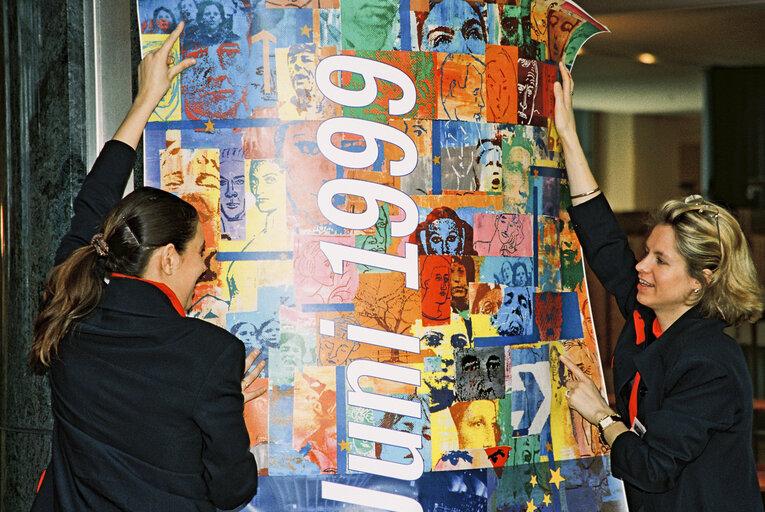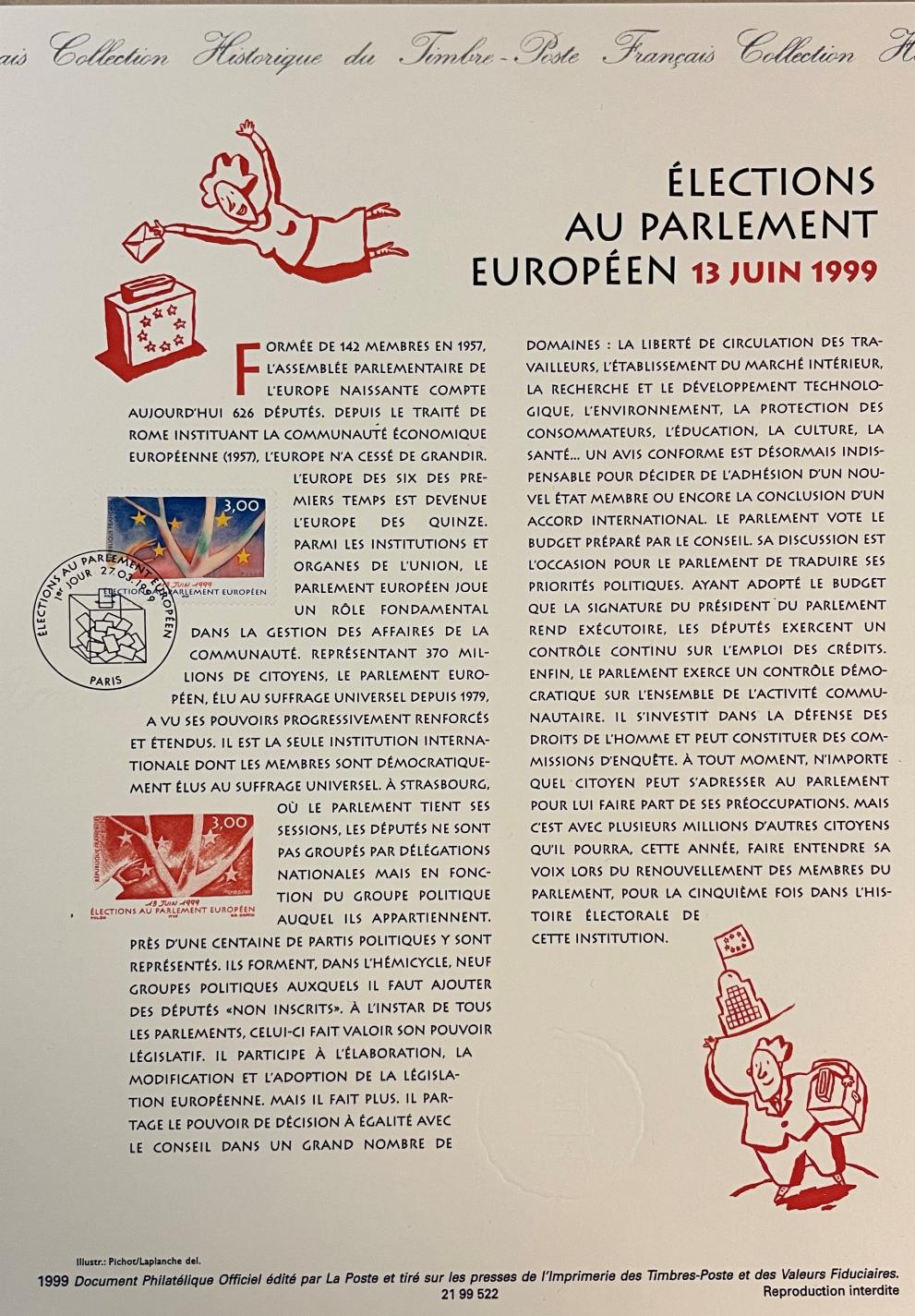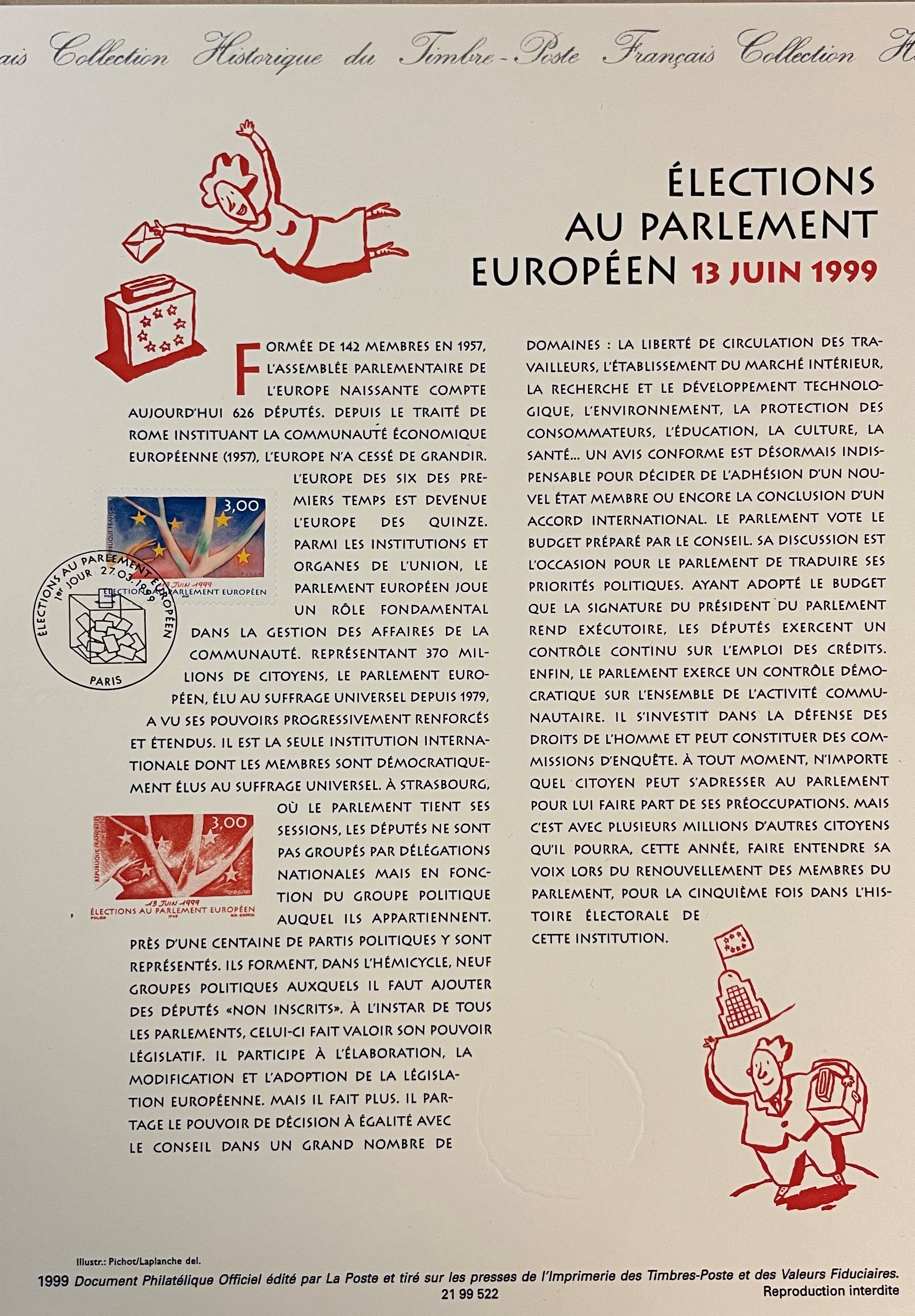
Les progrès de la monnaie unique étaient sur le point de déboucher sur quelque chose de tangible: des euros sous la forme de pièces et de billets. Un élargissement de grande ampleur venait de prendre de la vitesse, avec l’ouverture des négociations d’adhésion pour 12 pays candidats en 1998. Les dernières élections européennes du XXe siècle se sont déroulées à un moment charnière sur le plan politique et leur issue aurait une importance majeure.
Après bientôt un demi-siècle d’intégration européenne et une décennie sans Guerre froide, si la paix semblait acquise, le conflit du Kosovo a brutalement rappelé sa fragilité, comme l’avaient fait auparavant les guerres de Yougoslavie. Une politique extérieure européenne plus ferme semblait être le moyen d’assurer la stabilité du continent. Au cours de la législature suivante, la signature du traité de Nice (2001), qui modifiait à la fois le traité de Maastricht (1992) et le traité de Rome (1957), visait en partie à préparer l’Union à un nouvel élargissement.
Le taux de participation aux élections s’est élevé à 58 %. La Française Nicole Fontaine a été élue Présidente du Parlement européen pour la première moitié de la législature en 1999 et l’Irlandais Pat Cox a pris la relève en 2002 pour la seconde moitié de la législature. Cette législature a assisté à l’entrée en circulation de l’euro le 1er janvier 2002 et à la mise en place d’une Convention pour la rédaction de la Constitution européenne, mais elle a aussi été le témoin de défis majeurs pour l’Union européenne dans son rôle d’acteur sur la scène internationale. Les attentats du 11 septembre 2001 à New York et à Washington ont plus que jamais donné une place prépondérante à la lutte contre le terrorisme.
L’invasion de l’Iraq par les États-Unis a divisé l’Union européenne en deux groupes de pays: ceux qui se sont rangés du côté des États-Unis et ceux qui sont restés critiques. Une distinction dédaigneuse a même été établie entre la «vieille Europe» et la «nouvelle Europe».



